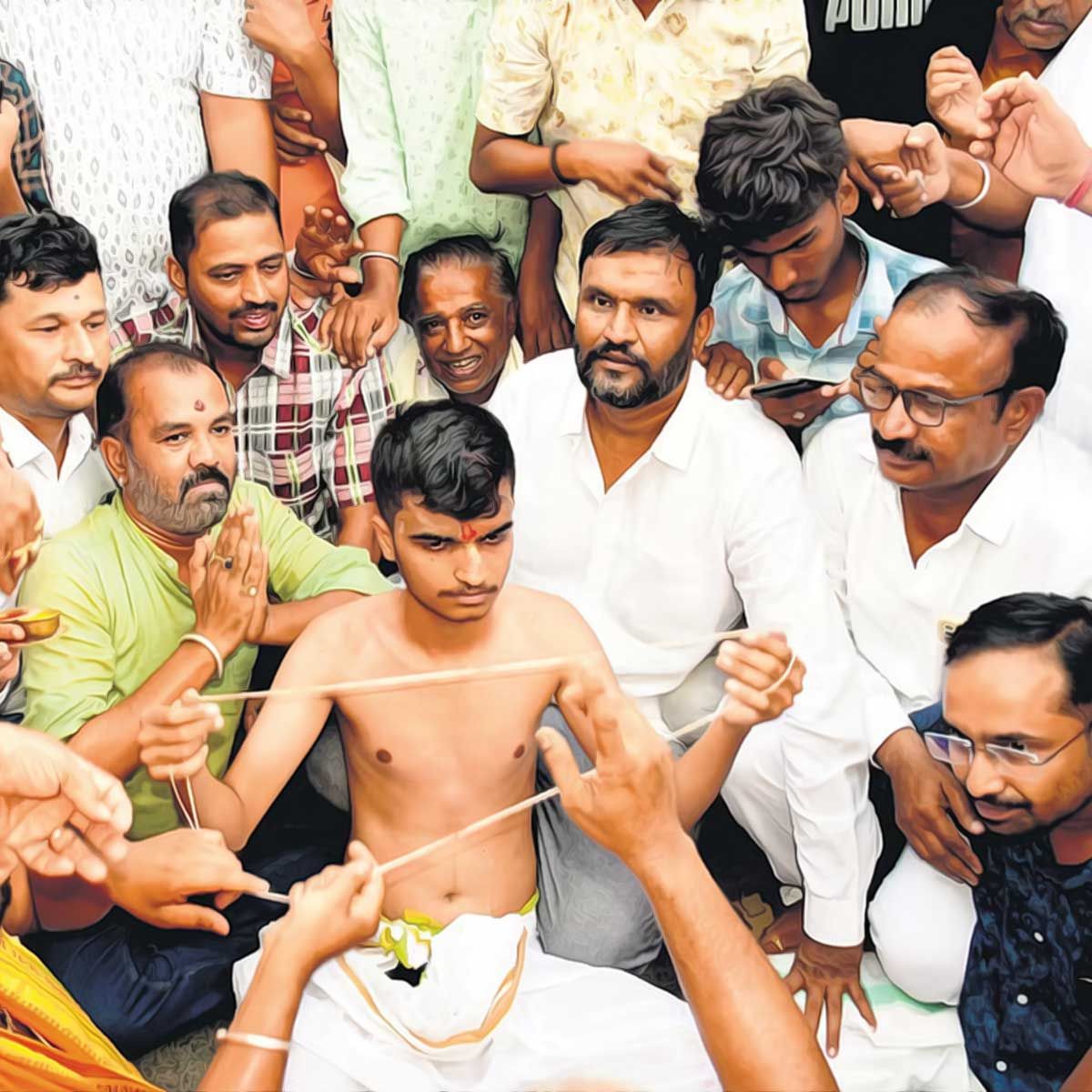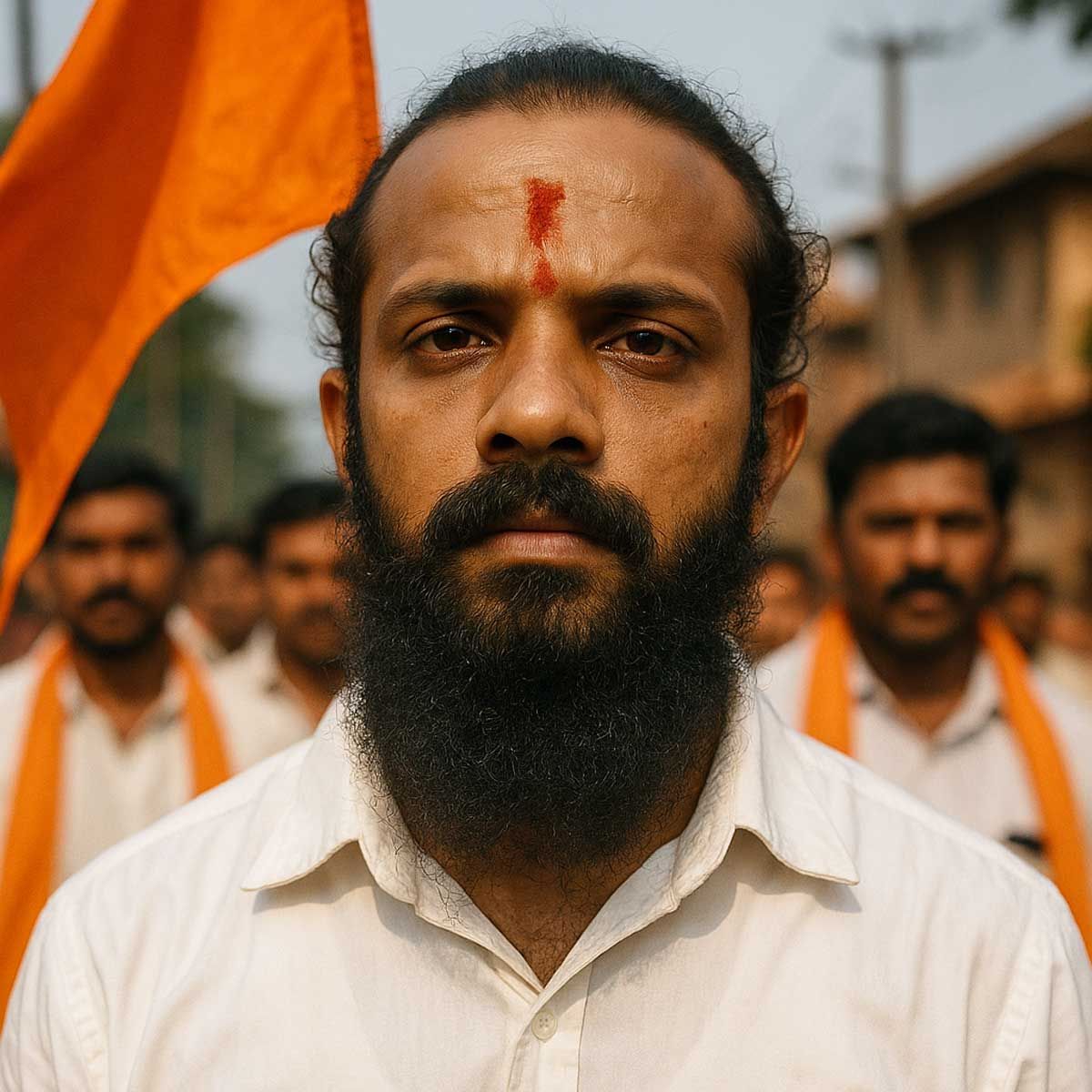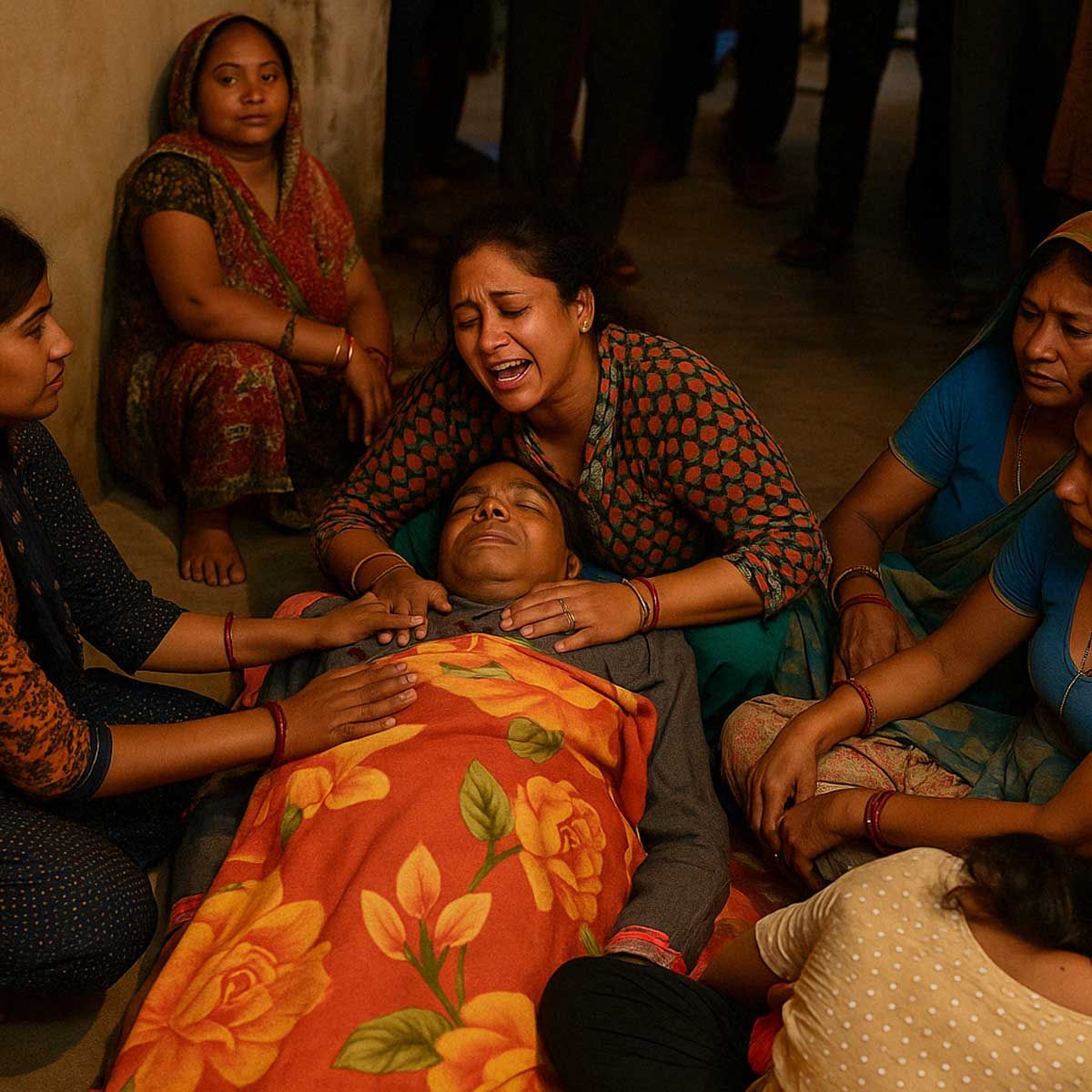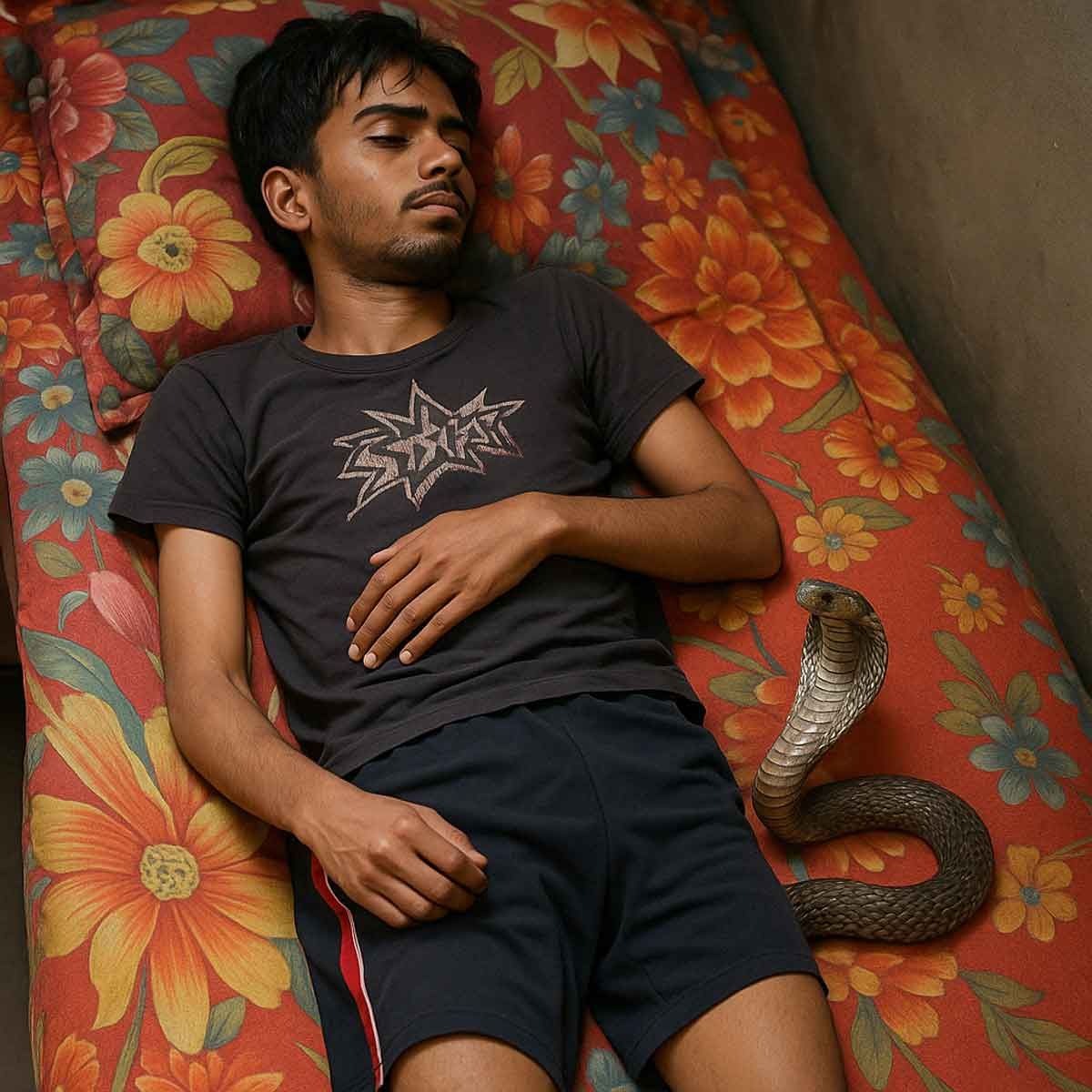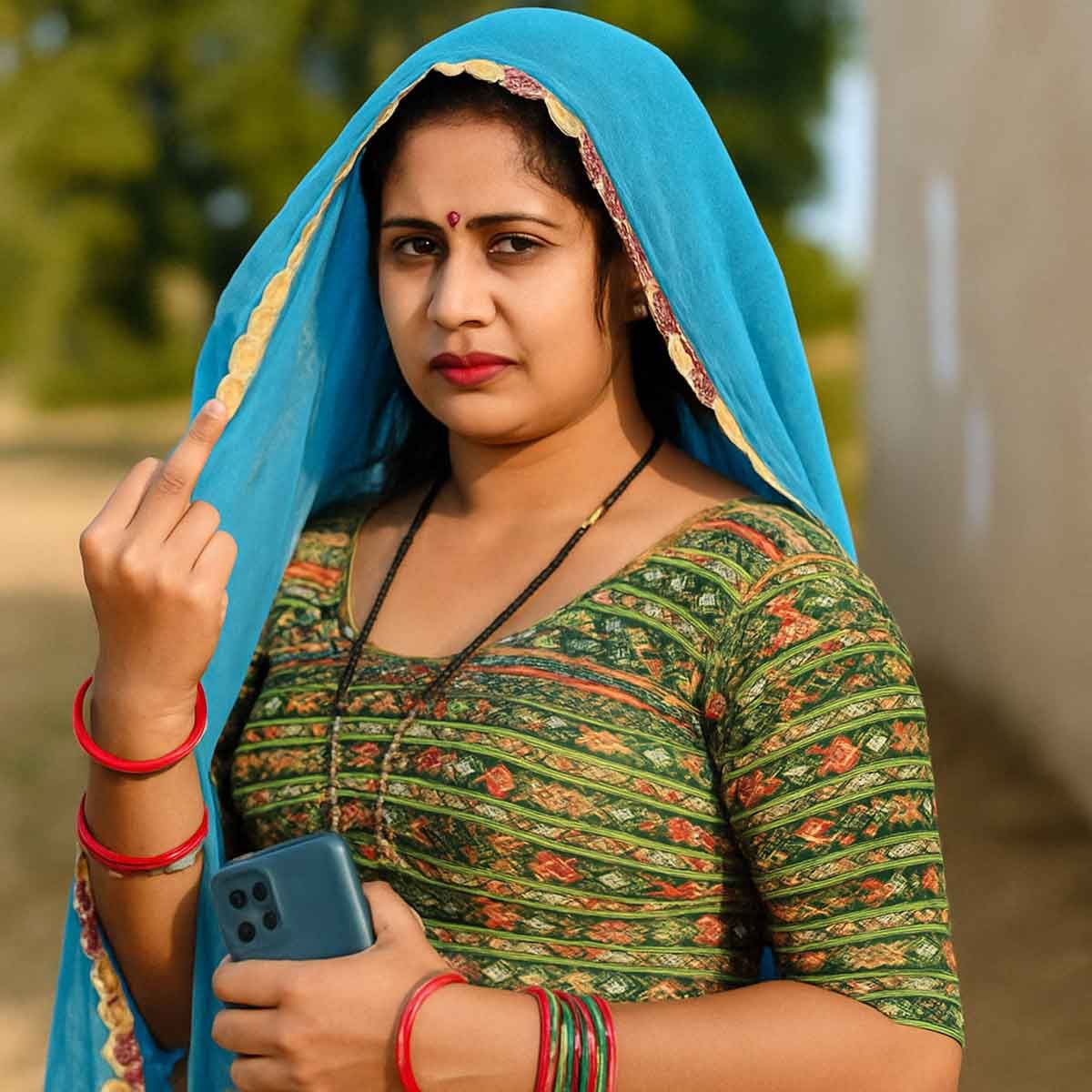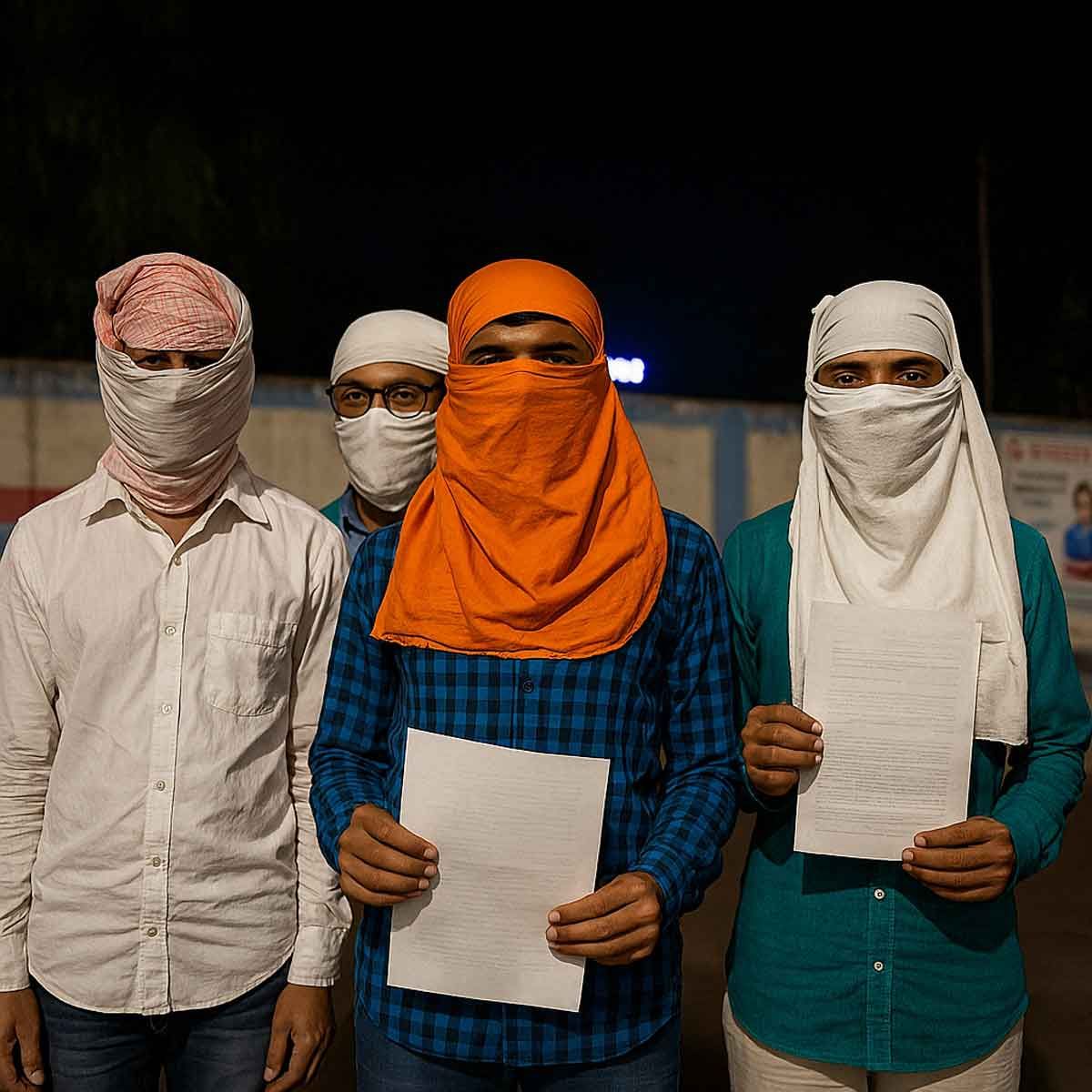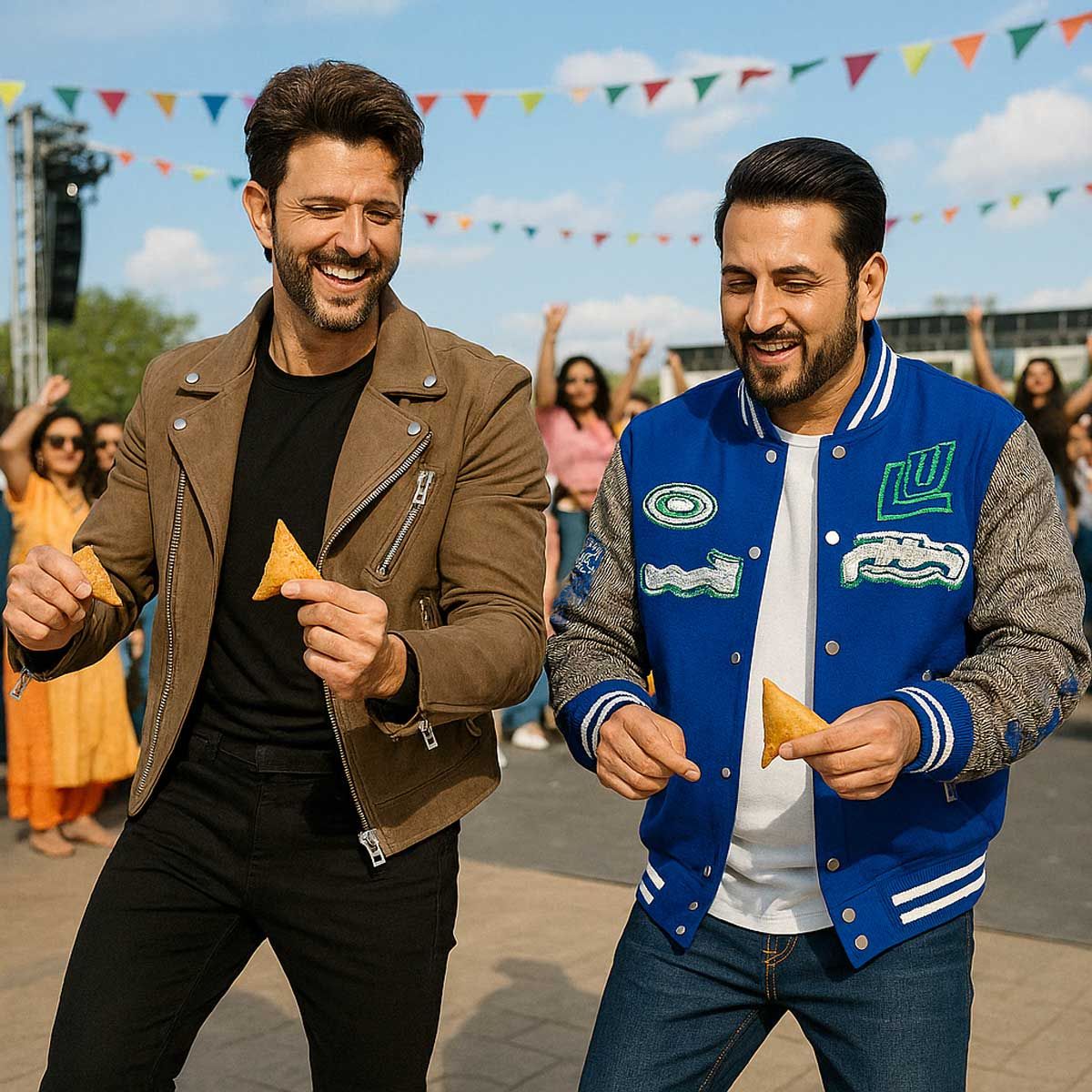More Coverage
Twitter Coverage
Satyaagrah
Written on
Satyaagrah
Written on
Satyaagrah
Written on
Satyaagrah
Written on
Satyaagrah
Written on
JOIN SATYAAGRAH SOCIAL MEDIA
SC's interim order restraining mosque surveys under the Places of Worship Act sends a troubling signal, empowering mob veto and prioritizing 'harmony' over constitutional rights and judicial independence, raising serious concerns for democracy

The Supreme Court’s interim order issued on December 12, concerning the Places of Worship Act, 1991, has sparked significant legal and constitutional debates. This directive restrains all courts across the country from entertaining fresh suits or issuing orders to survey mosques to ascertain if temple structures lie beneath them. While the decision, delivered by a three-judge bench comprising Chief Justice of India (CJI) Sanjiv Khanna and Justices P.V. Sanjay Kumar and K.V. Viswanathan, is ostensibly aimed at preserving peace and public order, its far-reaching implications have raised concerns about prioritizing societal harmony over fundamental rights.
The blanket stay applies to all existing and future suits related to the Act until the Supreme Court delivers a final verdict on its constitutional validity. This measure essentially stalls litigation initiated by Hindu groups seeking the restoration of religious sites, many of which they assert were altered or destroyed during specific historical periods. Critics argue that this interim order sets a precarious legal precedent, suggesting that judicial decisions can be influenced by societal and political considerations, potentially undermining the rule of law.
The decision has been widely interpreted as a significant intervention, effectively freezing the judiciary’s ability to address grievances surrounding disputed religious sites. By doing so, the order appears to prioritize societal harmony, perhaps at the cost of individuals' rights to seek legal redress—a core tenet of any democratic society.
|
Places of Worship Act: Legal Adventurism and its Precarious Precedent
The interim order also drew sharp criticism for its lack of adherence to established legal principles. Solicitor General Tushar Mehta highlighted a glaring concern, questioning how a civil suit between two parties could be stayed at the behest of a third party. Despite this crucial query, the bench proceeded with a blanket restraint, which has raised questions about the judicial process followed.
Courts are traditionally expected to rely on clear legal frameworks and evidence when delivering judgments. However, in this instance, the order’s foundation appears to rest on statements made during the proceedings rather than on a comprehensive analysis of the facts. Remarkably, the bench lacked precise data regarding the number of pending suits concerning disputed religious structures across the nation but still issued a far-reaching stay, leaving many to question the robustness of the decision-making process.
The reasoning behind the order hinges on two points. First, one petition seeks enforcement of the Places of Worship Act. Second, the bench is tasked with determining whether suits aimed at reclaiming religious sites are barred under the Act. Yet, both these arguments exhibit significant legal flaws, further amplifying concerns about the validity and scope of the interim directive.
This episode underscores the challenges posed by judicial interventions that lean heavily toward preserving public order while potentially sidelining the rights and liberties enshrined in the Constitution. As debates continue, the judiciary’s role in balancing societal harmony and individual rights remains a contentious issue that warrants careful examination.
|
The Arguments SC Relied on and Its Shortcomings: Denial of Judicial Review to Hindus
The Supreme Court’s reliance on the 2019 Ayodhya verdict to justify its intervention in the Places of Worship Act case has raised critical questions. Both CJI Sanjiv Khanna and Justice K.V. Viswanathan referred to the observations made by the five-judge Constitution bench in the Ayodhya ruling, suggesting these statements offered a basis for their nationwide stay on all related suits. However, significant concerns arise about whether such observations—classified as obiter dicta, meaning remarks made in passing without binding legal authority—could legitimately form the foundation for such a sweeping directive. It is important to note that the Ayodhya bench did not deliberate on or adjudicate the constitutional validity of the Places of Worship Act. Consequently, its comments on the Act, while notable, remain tangential and lack binding legal weight.
A major criticism leveled against the 1991 Act itself lies in its alleged denial of judicial review, a right considered fundamental under the Constitution. Petitioners challenging the Act contend that it effectively bars individuals from seeking judicial remedies for perceived historical injustices, thereby stifling their fundamental right to approach the courts.
The principle of judicial review, declared as a cornerstone of India’s constitutional framework, was established in the landmark 1980 judgment in Minerva Mills Ltd Vs Union of India. In this case, the Court emphatically stated: “The power of judicial review is an integral part of our constitutional system, and without it, there will be no government of laws, and the rule of law would become a teasing illusion.” This declaration reinforces the critical role of judicial review in safeguarding the Constitution’s integrity and the rights of its citizens.
However, by issuing a blanket stay on all pending suits concerning the Places of Worship Act, the Supreme Court appears to have inadvertently endorsed the very denial of judicial review that the petitioners have argued is unconstitutional. Instead of taking a cautious prima facie view on the Act’s constitutionality or reserving judgment until a detailed examination, the Court’s decision to halt legal proceedings altogether has effectively curtailed a fundamental right. This raises troubling questions about the balance between upholding constitutional principles and maintaining societal harmony, with the latter seemingly taking precedence in this instance.
|
The Troubling Message: Violence Can Shape Judicial Outcomes
The Supreme Court’s interim order in the Places of Worship Act case has unintentionally sent a deeply troubling signal: that violence, or even the threat of it, can influence judicial outcomes. Intervention applications submitted by those opposing surveys of religious sites cited instances such as the violence in Sambhal, Uttar Pradesh, as evidence of the potential consequences of not enforcing the Act. This was effectively an implicit warning that failing to uphold the Act could lead to unrest. The judiciary’s decision not to question such assertions might be seen as tacitly legitimizing the concept of mob veto, a dangerous precedent for a democracy governed by the rule of law.
The violence in Sambhal serves as a stark reminder of this issue. A court-appointed committee tasked with surveying a religious site was met with an attack, highlighting the challenges of enforcing judicial decisions in the face of public unrest. Instead of interrogating why a lawful court order was resisted with violence, the judiciary appears to have adopted an approach suggesting that peace can best be maintained by suppressing legal claims rather than ensuring adherence to the rule of law.
The Court’s interim order has emboldened certain factions within the political and intellectual spheres. While these groups have celebrated the decision, they have simultaneously criticized those who offered a different interpretation of the Act. Notably, former Chief Justice DY Chandrachud, who provided a more nuanced perspective during the Gyanvapi case hearing, has faced unwarranted backlash. This reflects an environment where judicial independence is under constant threat—not only from the government but also from influential interest groups.
As former CJI Chandrachud once remarked, judicial independence must extend beyond freedom from government interference to include freedom from societal and interest-group pressures. His statement underscores the need for constant vigilance in preserving the judiciary’s integrity. In this case, the Supreme Court’s actions emphasize the importance of ensuring that “justice should not only be done but also seen to be done.”
The interim stay on proceedings related to the Places of Worship Act raises profound questions about judicial overreach, the safeguarding of constitutional rights, and the delicate balance between maintaining peace and delivering justice. While the Court’s intention to preserve communal harmony is understandable, its approach risks undermining the very principles of rule of law and judicial independence that the judiciary is meant to uphold.
By favoring temporary calm over addressing historical grievances in a substantive manner, the judiciary has set a precedent that could have far-reaching consequences for constitutional governance and societal reconciliation in India. This case serves as a reminder that genuine peace cannot be achieved by sidestepping justice; it must emerge from a commitment to fairness, truth, and adherence to the Constitution.
 Support Us
Support Us
Satyagraha was born from the heart of our land, with an undying aim to unveil the true essence of Bharat. It seeks to illuminate the hidden tales of our valiant freedom fighters and the rich chronicles that haven't yet sung their complete melody in the mainstream.
While platforms like NDTV and 'The Wire' effortlessly garner funds under the banner of safeguarding democracy, we at Satyagraha walk a different path. Our strength and resonance come from you. In this journey to weave a stronger Bharat, every little contribution amplifies our voice. Let's come together, contribute as you can, and champion the true spirit of our nation.
 |  |  |
| ICICI Bank of Satyaagrah | Razorpay Bank of Satyaagrah | PayPal Bank of Satyaagrah - For International Payments |
If all above doesn't work, then try the LINK below:
Please share the article on other platforms
DISCLAIMER: The author is solely responsible for the views expressed in this article. The author carries the responsibility for citing and/or licensing of images utilized within the text. The website also frequently uses non-commercial images for representational purposes only in line with the article. We are not responsible for the authenticity of such images. If some images have a copyright issue, we request the person/entity to contact us at This email address is being protected from spambots. You need JavaScript enabled to view it. and we will take the necessary actions to resolve the issue.
Related Articles
- "Waqf Act is against secularism, unity, and integrity of the nation; Waqf is not mentioned anywhere in the Constitution" says Ashwini Upadhyay: Filed PIL in Delhi HC challenging provisions of Waqf Act
- "Festivals are happy places, and you don't really want to enjoy them on your own": CJI, Supreme Court ~ "Why do we always want to portray that religious festivals are the time for riots; for example, there are no riots during Ganesh Puja in Maharashtra"
- Controversial Marxist leader Brinda Karat reaches Jahangirpuri to implement Supreme Court order, fanatic Leftist journos outrage over order not being followed immediately and took to Twitter to attack NDMC officials
- "Excessively harsh": Centre opposes criminalizing marital rape, citing existing laws like Sections 354, 354A, 354B, 498A IPC, and the Domestic Violence Act, 2005, already offer serious penal consequences for violations of consent within marriage
- "Judge saheb ko bura laga kya… nahi, bas yunhi pooch riya hun": CJI Ramana slams Indian media amid the backlash judiciary is facing over controversial remarks and judgements, says ‘Media running agenda-driven debates and kangaroo courts’
- In a defining moment, India's Supreme Court declined to recognize same-sex marriage rights, placing the onus on Parliament, amidst passionate pleas & dissenting opinions, future of LGBTQ+ unions remains in legislative hands, echoing society's crossroads
- Minimum age of women for marriage is raised to 21 years: Union Cabinet clears proposal
- "Chutiyaram": Delhi’s Trade Marks Registry shockingly approved ‘CHUTIYARAM’ for Sadhna Goswami’s namkeen and biscuits, but later on withdrawing it after two weeks, admitting Balaji’s epic fail let a crude mark dodge Section 9(2)(c), sparking a hearing
- “A bench of Justices chosen through collegium got to choose to decide who has the better lawyer”: Karnataka government supports High Court verdict upholding marital rape charges against husband which is another stark violation of human rights
- "अंधा कानून": Rajasthan High Court overturns a decades-old rape conviction, ruling that removing a minor’s innerwear and undressing oneself does not constitute an 'attempt to rape,' but rather 'outraging the modesty of a woman' under Section 354 IPC
- “We know what we are, but know not what we may be”: Every human being has right to choose his or her gender identity: Rajasthan High Court ordered authorities to consider changing the records of a man who secured a job under the General Female Category
- "लताड़": Madras HC slams Tamil Nadu police for FIR errors in Anna University assault case, orders ₹25 lakh compensation, women-led SIT probe, victim’s fee waiver, action on FIR leak, and police lapses, ensuring privacy, dignity, and justice for the victim
- “There’s no such thing as failure – just waiting for success”: After denying clearances for development projects for three decades, the Indian Supreme Court green bench clears 118 development projects already delayed for 5 years for pending litigation
- “If you’re good enough to hit the gym at 70, why not a courtroom?”: Age of retirement of Supreme Court and High Court Judges needs to be increased in sync with increase in the longevity and advancement in medical sciences, Parliamentary Committee
- "Freedom is whatever the Court says it is, pending revision": Kiren Rijiju in Rajya Sabha, "Until we create a new system for Appointment of Judges, issue of Judicial Vacancies will continue to arise which is a big reason for the huge pendency of cases"















